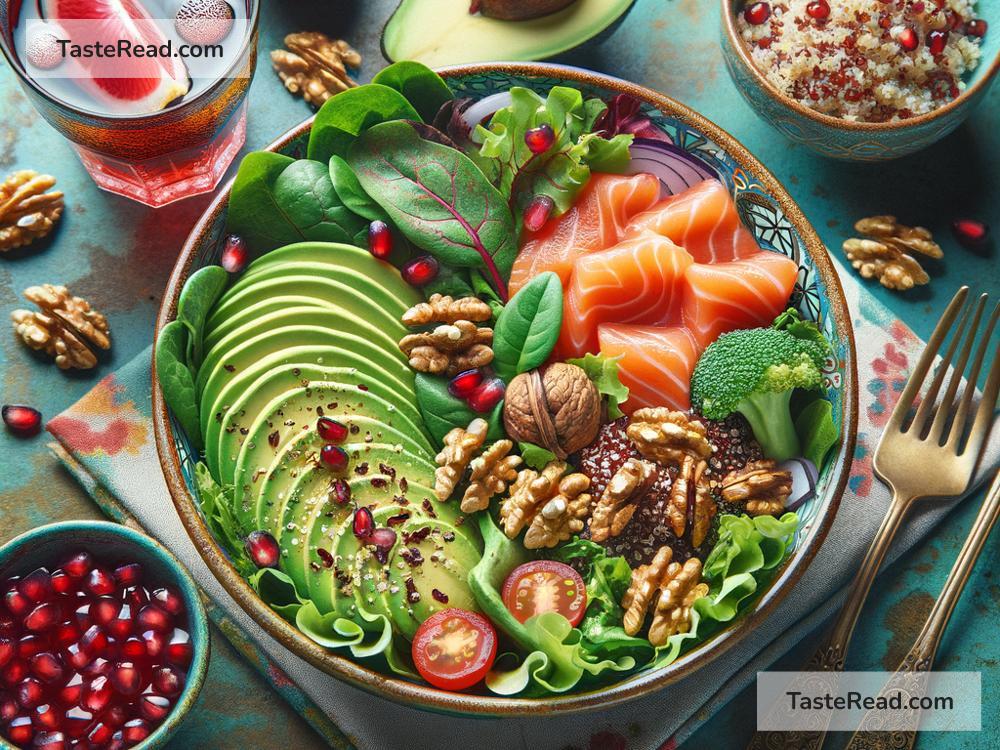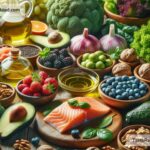Foods That Reduce Risk of Arrhythmia: Heart-Healthy Eating Made Simple
Arrhythmia is a condition where the heart beats irregularly, too fast, or too slow. It can affect your quality of life and, in severe cases, lead to complications like strokes or heart failure. However, did you know that the food you eat can play a big role in keeping your heart rhythm steady and healthy? In this blog, we’ll explore simple and delicious foods that can reduce the risk of arrhythmia and strengthen your heart.
The Connection Between Food and Heart Health
What you eat directly affects your heart. Certain nutrients like potassium, magnesium, omega-3 fatty acids, and antioxidants help regulate your heart’s electrical system and maintain proper blood flow. A diet rich in heart-friendly foods can help prevent arrhythmia, while consuming too much processed or unhealthy food can increase your risk.
Choosing the right foods can make a big difference, especially if you already have risk factors for arrhythmia like high blood pressure, high cholesterol, diabetes, or stress. Let’s dive into the best foods for protecting your heart.
1. Leafy Green Vegetables
Spinach, kale, Swiss chard, and other leafy greens are loaded with essential nutrients like magnesium and potassium. These minerals help regulate your heart’s electrical impulses and keep your heartbeat stable. Magnesium helps relax blood vessels, while potassium prevents high blood pressure, which is a risk factor for arrhythmia.
Bonus tip: Add leafy greens to smoothies, salads, or soups for a tasty way to support your heart health.
2. Fatty Fish
Salmon, mackerel, sardines, and other fatty fish are rich in omega-3 fatty acids, which are excellent for heart health. Omega-3s help reduce inflammation and stabilize your heart rhythm. They can also lower triglycerides and prevent the buildup of fatty deposits in your arteries, which might otherwise trigger arrhythmias.
If fresh fish isn’t available, canned options like tuna or salmon still pack a powerful omega-3 punch.
3. Nuts and Seeds
Almonds, walnuts, chia seeds, and flaxseeds are not only delicious but also rich in heart-healthy fats and magnesium. Walnuts, in particular, are loaded with omega-3 fatty acids, which help improve heart function over time. Magnesium is vital because it relaxes the muscles around your heart and supports normal electrical signaling.
Keep a small handful of nuts or seeds handy as a snack for a quick heart-health boost during the day.
4. Avocados
Avocados are a tasty source of potassium, which helps regulate blood pressure and prevent arrhythmias. Potassium balances out the sodium in your body and keeps your heart working efficiently. Plus, avocados are rich in healthy fats, contributing to overall cardiovascular health.
Spread avocado on toast, slice it into salads, or make guacamole for a delicious and heart-healthy treat.
5. Whole Grains
Brown rice, quinoa, oats, and whole-grain bread are packed with fiber and nutrients that keep your blood pressure in check. Fiber-rich foods reduce cholesterol levels, making it easier for the heart to pump blood without straining. Healthy circulation helps ensure your heart doesn’t have to overwork, reducing the risk of arrhythmias.
Opt for whole grains instead of refined carbs like white bread or pastries to maximize your heart health benefits.
6. Berries
Blueberries, strawberries, raspberries, and blackberries are loaded with antioxidants that fight inflammation and oxidative stress in your heart. Inflammation can disrupt your heart’s normal rhythm, so adding berries to your diet can help prevent arrhythmia.
Enjoy them fresh, blend them into smoothies, or sprinkle them on oatmeal for a sweet and heart-friendly treat.
7. Bananas
Bananas are one of the best sources of potassium, an essential nutrient for keeping your heart’s rhythm steady. They’re also easy to eat on the go and make for a delicious addition to smoothies or breakfast dishes.
Pro tip: Pair bananas with peanut butter for a satisfying and heart-healthy snack.
8. Dark Chocolate
Yes, chocolate can be good for your heart—if you choose the right kind. Dark chocolate (with at least 70% cocoa) contains antioxidants called flavonoids that improve blood flow and reduce inflammation.
Enjoying a small piece of dark chocolate occasionally can benefit your heart without overloading on sugar.
9. Legumes
Beans, lentils, and chickpeas are excellent sources of fiber and magnesium. They help lower cholesterol levels, reduce inflammation, and stabilize blood sugar, all of which contribute to a healthy heart rhythm.
Add legumes to soups, salads, or stews for a hearty and heart-friendly meal.
10. Low-Fat Dairy
Low-fat yogurt, milk, and cheese provide calcium and potassium, which are essential for a healthy heartbeat. Too much or too little calcium can affect your heart’s electrical activity, so consuming balanced amounts is key.
Choose unsweetened or lightly sweetened yogurt for maximum health benefits.
Foods to Avoid
Just as important as knowing what to eat is knowing what to avoid. Processed foods, sugary drinks, excess caffeine, and high-sodium snacks can increase your risk of arrhythmia. Limiting alcohol intake is also vital, as alcohol can interfere with your heart’s rhythm.
Heart-Healthy Habits
While eating heart-friendly foods is crucial, it’s only one piece of the puzzle. Combine a good diet with regular exercise, stress management, and avoiding smoking for maximum heart health benefits.
Final Thoughts
The old saying “you are what you eat” holds especially true when it comes to your heart. By incorporating foods like leafy greens, fatty fish, nuts, berries, and whole grains into your diet, you can significantly reduce your risk of arrhythmia and enjoy a healthier heart.
Small changes to your eating habits can make a big difference over time. So, why not start today? Your heart will thank you!


